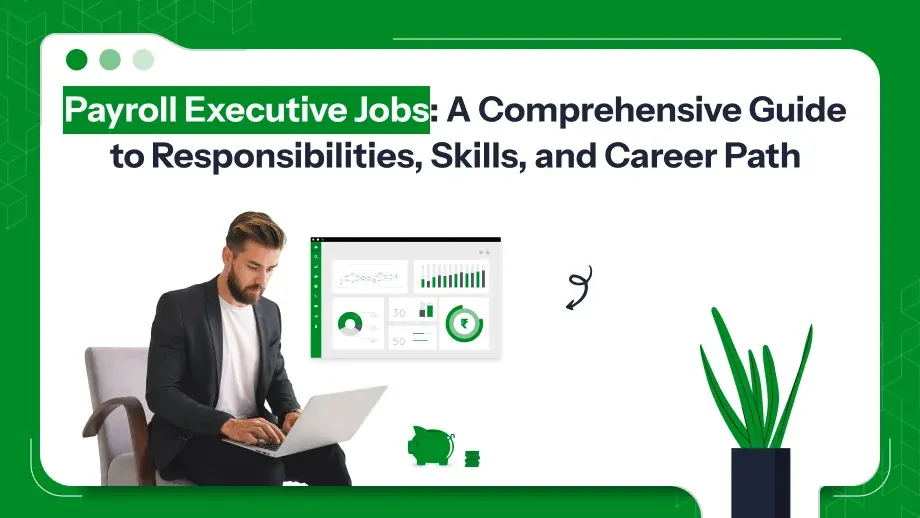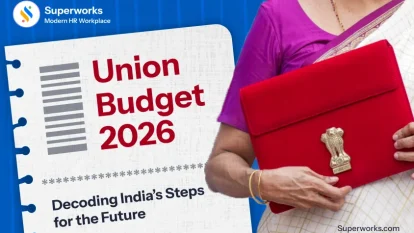
One crucial job in any business entails ensuring that the employees of any given business are paid according to terms stipulated. The payroll executive jobs carries out this responsibility and provides effective handling of payroll calculations alongside compliance with labor laws on a given organization. Professional advice forms an integral part in smoothening an organizations operations through proper and time-processed payroll.
What is a Payroll Executive?
Someone who is in charge of managing and analyzing personnel payroll data is known as a payroll executive. This is to ensure that workers get paid accurately, on schedule, and in compliance with tax laws. Payroll executives work in virtually every industry, include retail, education, health care, and financial.
Typical duties for a payroll executive involve making sure all payroll duties are completed, computing salaries, paying taxes, keeping record of employees, and creating pay reports.
Main Payroll Executive Responsibilities
A payroll executive undertakes a range of tasks linked to the payroll procedure. These are some of the most important responsibilities of a payroll executive:
Processing Payroll:
Managing employee payroll is a payroll executive’s main job. Payroll, bonuses, salary, overtime, and taxes for things like taxes, insurance premiums, and savings for retirement have to all be handled.
Maintaining Employee Records:
Payroll directors keep precise documentation of individuals’ income, taxes, paid time off, and attendance. These paperwork must be maintained on an ongoing schedule to help insure error-free, effective payroll administration.
Tax Compliance:
Executives in charge of managing payroll have to make sure that all state, local, and federal tax laws are adhered to. This includes timely submission of tax returns and proper income withholding.
Payroll managers:
React to inquiries from workers about their wages, deductions, and other payroll-related issues. They are able to address problems quickly and give clear responses, often providing detailed explanations and resolving any concerns with efficiency and professionalism.
Payroll Report Preparation:
Payroll executives are in the position of creating and sending payroll reports to the finance, management, and personnel departments. Payroll expenses, benefits, taxes, and other important factors are tracked in these documents.
Ensuring Timely Payments:
Ensuring that workers are paid timely is a crucial component of the payroll executive’s job description. Incorrect or delayed wages may result in angry employees and legal problems, potentially damaging the company’s reputation and morale.
Looking for a Payroll Executive jobs and roles?
Streamline your payroll with Superworks!
Benefits Administration:
Handling employee benefits, including health insurance, retirement programs, and other perks, is an everyday task for payroll executives. They ensure precise analysis and payroll deduction, while also staying updated on changes in benefits policies to guarantee compliance.
Payroll Data Auditing:
To ensure precision, payroll executives must regularly audit payroll data. It entails verifying that all wage, advantage, and deduction information conforms with the relevant laws and company requirements.
Compliance with Labor Laws:
The payroll executive needs to remain up with the latest on any updates to labor laws and rules. They have to take steps to make sure that the the company’s payroll practices remain in accordance with labor regulations pertaining to minimum wages, extra hours, and worker designations.
Skills for Payroll Executive Jobs
It takes an array of technical, focused on individuals, and administrative abilities to be a successful payroll executive. Here are some vital skills desired:
Attention to Detail: To make sure that all payroll data is correct and to ensure every worker is paid appropriately, payroll executives require that they possess exceptional care for detail.
Knowledge of Payroll Software: Payroll specialists has to to be familiar with ADP, QuickBooks, and other human resources administration software. They ought to be enabled to avoid mistakes and speed the payroll process is a result.
Analytical Skills: To make sure that every number add up, payroll executives have to be able to assess tax, payroll analyst, and benefits data.
Understanding of Labor and Tax Laws: It is crucial to have a solid grasp of both labor and tax regulations. Payroll executives ought to stay informed of any changes to labour or tax regulations that might have a bearing on the administration of payroll.
Communication Skills: So to effectively and succinctly explain difficult payroll ideas, payroll executives must have great communication skills because they frequently communicate with staff members about the benefits and wages they receive.
Time management: Payroll managers must manage an array of duties and due dates, especially when they relate to tax filing deadlines and payroll deadlines.
Confidentiality: Payroll executives must manage all information with the highest confidentiality and integrity since payroll data is very sensitive.
Problem-Solving Ability: Payroll executives need to be able to isolate the issue fast and develop a successful fix when irregularities or problems develop in payment.
Qualifications for Payroll Executive Jobs
In order to find payroll executive jobs, candidates usually need to fulfill the essential necessities:
Education:
Payroll management positions frequently call for an educational background in accounting, finance, management of businesses, or human resources management. Applicants with appropriate work experience can additionally be accepted by certain companies.
Certification:
It may be beneficial to have accreditation from a reputable organization, such as the National Payroll Association (APA). Some examples of certifications that can improve your standing in the marketplace and your professional CV involve CPP or FPC.
Experience:
An entry-level position will sometimes require minimal experience; most payroll executive jobs will expect a few years of experience within payroll processing or accounting. Experience with payroll software is highly valued.
How to Find Jobs for Payroll Executives
There are some techniques you can use to boost your likelihood of landing the ideal position if you have an interest in seeking payroll executive jobs:
Job sites: Known job sites including Glassdoor, Indeed, on LinkedIn, etc.
jobs for payroll executives. The results are able to customized by business size, setting, and pay.
Company Websites: A great deal of businesses have websites where they advertise job openings. Constantly check the professional area for any new positions.
Networking: Contacting HR and accountants is one of the finest ways to find out about a job opening. Attend seminars, join discussions on the internet, and connect with experts in the industry.
Recruitment firms: Specialist hiring firms which concentrate in human resources and financial responsibilities are able to fill payroll managerial positions. It might also be ready to offer helpful guidance regarding the job search.
Industry Groups: You can gain advantage over special employment opportunities and career advice by joining groups or organizations which deal with payments and human resources matters.
Executive Payroll Job Description
A job description for payroll executive often involves more strategic responsibilities than a regular payroll position. In addition to overseeing payroll processing, an executive payroll professional may:
Develop and implement digital payroll strategies that align with organizational goals. Supervise a team of payroll professionals and collaborate with senior management to optimize payroll-related processes.
Advice on compliance issues related to payroll and labor laws and lead the integration of new payroll systems and technologies. Executive payroll specialists can get involved in tactical choices and payroll department process improvements in big companies.
Professional Development and Possibilities
There is an ongoing demand for competent payroll executive jobs have a numerous opportunities for development in the field. As your gain experience, you might be promoted to positions like Hrm director, payroll manager, or payroll director.
In larger organizations, payroll executives may also have opportunities to specialize in areas such as benefits administration, compensation analysis, or human resource management.
Challenges in Payroll Executive Jobs:
The payroll executive jobs can be fulfilling, possesses downsides calls for cautiously, versatility, and analytic abilities. Making sure that workers are paid on time and appropriately is an important task of the payroll executive. However, given the intricacy of the job, it needs a very high level of accuracy and attentiveness.
Complexity of tax laws :
It can be a nightmare for business as well as individuals as both of them have to update the frequent changes of tax regulations and labor laws. It can lead to errors, missed opportunities, or even compliance issues with the constant need to learn and attention to detail.
Managing Multiple Systems:
Many companies use multiple different software systems to manage payrolls, which can bring significant challenges in ensuring seamless integrations. This often presents with data inconsistencies, therefore challenging the accuracy of that information across systems.
Confidentiality Risk:
Payroll executives deal with sensitive information related to employees, so confidentiality is a high priority. Unapproved access or breaches in data can lead to major privacy violations and lawsuits. This calls for highly robust systems, strict protocols, and constant vigilance to protect employee privacy.
Conclusion
Payroll executive is the backbone of any organization without which it would not have worked efficiently. Payroll executive jobs handle such tasks that are mainly concerning payroll, tax law compliances, employee benefit administration, and payroll query answering.
This role, therefore, requires a candidate who has both technical knowledge as well as analytical skills in conjunction with minute attention towards the details.Payroll executives jobs if one gains experience, obtains certifications, and gets a good grasp of payroll software and taxation laws.









